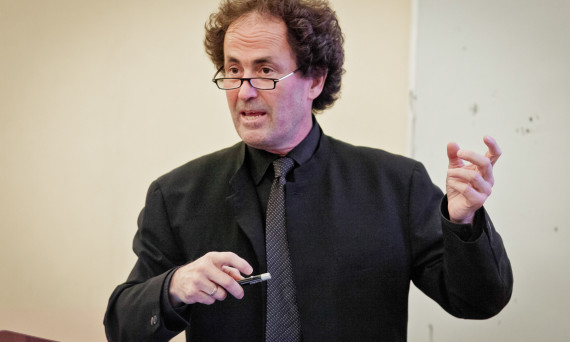On October 3, 2014, at 7 PM, in the EUSP Conference hall professor Mario Biagioli will give a talk on "Digital Pastures: Naturalizing and Reifying The Commons".
From software and science to collaborative forms of cultural production, the commons of the so-called knowledge economy are typically figured as networks, either material or virtual. Their primary inputs are not bulky materials but highly moveable information that, unlike the goods of the traditional economy, can be copied and disseminated over and over without depleting the "original." These collaborations are not associated to a group of people sharing the same workspace but figured as a connected and changing grid where interactions follow a schedule so variable as to question traditional notions of collaboration. Face-to-face interaction can happen, but is certainly not the rule. Finally, technology is front and center, often constituting both an input and an output of these collaborations. In the case of free and open source software, the Internet provides the platform on which hackers may produce more applications.
All this is contradicted, however, by the images offered to exemplify such commons -- images of communal landed property like village pastures, lobster fisheries in the Gulf of Maine, public forests in Nepal, or shared grazing land in Mongolia. Why are pastures invoked to visualize highly technological networks? This, I argue, is not just a problem with poor metaphors that happen to bleach out what is most distinctive about these commons - technology -- but an indication of a conceptual tension. The apparent naturalization of the commons follows from a tendency to conceptualize it as resource rather than a mode of action - collaborative action. Also surprising is that while network-based notions of the commons configure human actors as part-time collaborators, hackers, travelers, traders, strangers, and pirates, we see that pasture-centered naturalized conceptualizations of the commons rely explicitly on the existence and importance of organic communities - the kind of groups capable of establishing local communal norms for the management of such depletable resources. More than the usual semantic blur associated with metaphors, these "bucolic" representations of the commons index a conservative undercurrent within so-called progressive intellectual property politics that romanticizes communities and their allegedly organic norms and forms of collaboration. In doing so, it unwittingly reifies property (albeit in the form of communal property) rather than un-think it to make room for post-property concepts better able to capture collaborative knowledge making and knowledge access.
